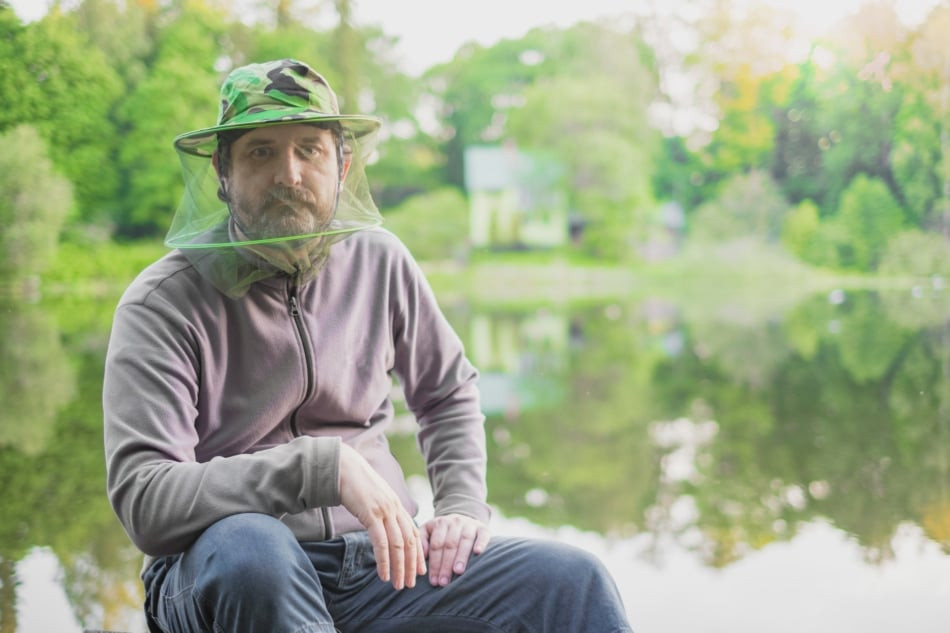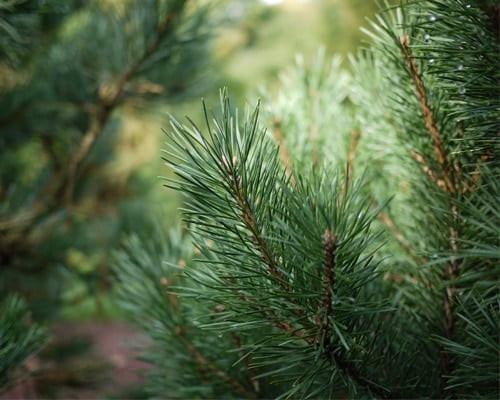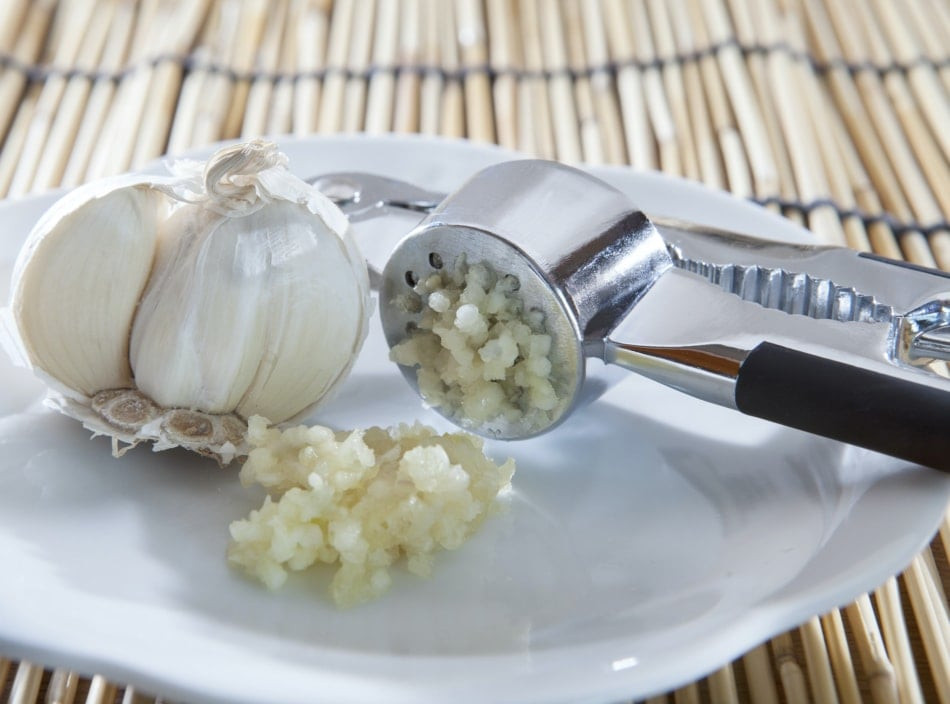Black flies, a nuisance for outdoor enthusiasts, can put a damper on any adventure. What Keeps Black Flies Away? Read on to discover effective strategies and solutions to keep these pests at bay, ensuring a more enjoyable time outdoors, brought to you by flyermedia.net. From natural repellents to protective clothing, this guide provides comprehensive insights and practical tips to tackle black fly infestations. Learn how to protect yourself and your loved ones from these irritating insects.
1. Understanding Black Flies and Their Behavior
To effectively combat black flies, it’s crucial to understand their behavior and habitat. Black flies, also known as buffalo gnats or turkey gnats, are small insects that thrive in fast-flowing water sources. Knowing when they’re most active and where they breed can help you take preventive measures.
1.1 What Are Black Flies?
Black flies (Simuliidae) are tiny, blood-sucking insects that can be a significant nuisance, especially in wooded areas near rivers and streams. They are known for their persistent biting and the irritating welts they leave behind.
According to Penn State Extension, black flies are most abundant in areas with clean, flowing water, which is essential for their larvae to develop. Adult black flies are typically 1/8 inch long and can fly several miles from their breeding sites.
1.2 When Are Black Flies Most Active?
Black flies are most active during daylight hours, particularly in the late morning and early afternoon. Their peak season is typically from mid-May to July, depending on the region and weather conditions.
“Black fly season generally corresponds with warmer weather and the availability of fast-flowing water,” explains entomologist Dr. Doug Pfeiffer from Virginia Tech. “Understanding this timing is key to minimizing exposure.”
1.3 Where Do Black Flies Breed?
Black flies breed in clean, fast-flowing water such as rivers, streams, and brooks. The female black flies lay their eggs on submerged rocks, vegetation, or other surfaces in these waterways. The larvae attach themselves to these surfaces and feed on organic matter in the water.
A study by the University of New Hampshire found that controlling black fly populations requires targeting their breeding sites. “Effective black fly management involves identifying and treating breeding sites with larvicides that are safe for the environment,” the study noted.
2. Effective Strategies to Repel Black Flies
Several strategies can help you repel black flies and minimize their bites. These range from wearing protective clothing to using natural and chemical repellents.
2.1 Protective Clothing: Covering Up
One of the simplest and most effective ways to prevent black fly bites is to wear protective clothing. Covering as much skin as possible reduces the areas where black flies can bite.
2.1.1 Long Sleeves and Pants
Wearing long-sleeved shirts and pants is essential when spending time outdoors during black fly season. Choose light-colored clothing, as black flies are attracted to dark colors.
“Light-colored clothing can make you less attractive to black flies,” advises the Maine Forest Service. “Covering exposed skin is your first line of defense.”
2.1.2 Hats with Netting
Black flies often swarm around the face, making a hat with attached netting a valuable asset. These nets provide a physical barrier, preventing black flies from reaching your face and neck.
 Black fly – Fly
Black fly – Fly
“A head net is a must-have for anyone spending time in areas with high black fly populations,” says outdoor expert Emily Johnson. “It provides instant relief and protection.”
2.2 Natural Repellents: Harnessing Nature’s Power
Several natural repellents can help keep black flies away. These options are often preferred by those looking to avoid harsh chemicals.
2.2.1 Vanilla Extract
Vanilla extract is a popular natural repellent. Applying a small amount to your skin can help deter black flies. Its pleasant scent is a bonus for many users.
“Vanilla extract is a surprisingly effective repellent,” notes herbalist Sarah Thompson. “It’s safe for most people and has a nice fragrance.”
2.2.2 Lavender Oil
Lavender oil is another natural option with a pleasant scent. Its insect-repelling properties can help keep black flies at bay. Dilute lavender oil with a carrier oil, such as coconut or almond oil, before applying it to your skin.
According to a study in the Journal of Economic Entomology, lavender oil has shown repellent activity against various insects. “Lavender oil contains compounds that interfere with the insect’s sense of smell, making it difficult for them to locate their host,” the study explains.
2.2.3 Pine Extract
Extract from pine branches can also act as a natural repellent. Breaking open a young pine branch and rubbing the moisture from inside on your skin can provide some protection.
 Pinus sylvestris – Conifers
Pinus sylvestris – Conifers
“Pine extract contains compounds that are naturally repellent to black flies,” explains forester John Davis. “It’s a simple and effective remedy when you’re out in the woods.”
2.3 Chemical Repellents: DEET and Permethrin
When natural repellents aren’t enough, chemical repellents containing DEET or permethrin can provide stronger protection.
2.3.1 DEET
DEET (N,N-Diethyl-meta-toluamide) is a common ingredient in insect repellents. It is effective against a wide range of insects, including black flies. However, its effectiveness against black flies can vary.
“DEET is a reliable repellent, but its effectiveness against black flies can be unpredictable,” cautions Dr. Mark Hansen, an entomologist at the University of Florida. “Some people report that DEET sprays even attract black flies.”
2.3.2 Permethrin
Permethrin is another chemical repellent that is more likely to be effective against black flies. It is often used to treat clothing and gear, providing a longer-lasting barrier.
“Permethrin-treated clothing can significantly reduce your risk of black fly bites,” advises the CDC. “However, permethrin is more toxic than DEET and should be used with caution.”
2.4 Avoiding Attractants: Reducing Your Appeal
Black flies are attracted to certain scents and substances. Avoiding these attractants can help reduce your risk of being bitten.
2.4.1 Sweet-Smelling Perfumes and Lotions
Avoid wearing sweet-smelling perfumes, lotions, and fabric softeners when outdoors. These scents can attract black flies and other biting insects.
“Black flies are drawn to sweet fragrances,” warns dermatologist Dr. Lisa Garner. “Opt for unscented products when spending time outdoors.”
2.4.2 Sugary Foods and Drinks
Indulging in candy or soft drinks outdoors can also attract black flies. The sugar in these items can make you more appealing to insects.
 Soft Drink – Cola
Soft Drink – Cola
“Sugary substances can act as a magnet for black flies,” notes nutritionist Amy Collins. “Choose healthier, less sugary options when you’re outside.”
2.5 Physical Barriers: Creating Bug-Free Zones
Creating physical barriers can help keep black flies away from your immediate environment.
2.5.1 Fans
Using a fan can create a wind barrier that makes it difficult for black flies to fly near you. This is a chemical-free way to keep them away from your porch or outdoor seating area.
“Fans are surprisingly effective at deterring black flies,” says outdoor living expert Tom Stevens. “The moving air disrupts their flight patterns and keeps them away.”
2.5.2 Window Screens and Bug Zappers
Ensure that your windows and doors have screens to prevent black flies from entering your home. Bug zappers can also help reduce the number of black flies in your yard, but their effectiveness can be limited.
According to a study by the University of Delaware, bug zappers primarily attract and kill non-biting insects. “While bug zappers may kill some black flies, they are not a reliable method for controlling their populations,” the study concludes.
3. Home Remedies to Keep Black Flies Away
Several home remedies have been suggested to repel black flies. While their effectiveness can vary, many people find them helpful.
3.1 Apple Cider Vinegar
Apple cider vinegar (ACV) is an old-time remedy that some people believe helps repel black flies. Taking a tablespoon of ACV three to four times a day, starting several days before your outdoor activity, may help your skin ward off biting insects.
 Apple Cider Vinegar in a bowl next to an apple
Apple Cider Vinegar in a bowl next to an apple
“Apple cider vinegar can alter your body odor, making you less attractive to black flies,” explains holistic health practitioner Dr. Megan Edwards. “However, it’s important to consult with your doctor before starting any new supplement regimen.”
3.2 Garlic
Eating garlic is another home remedy that some people use to repel black flies. The sulfur compounds in garlic are believed to make your skin less appealing to insects.
 Garlic – crushed with a garlic press
Garlic – crushed with a garlic press
“Garlic contains allicin, a compound that can be released through your skin and act as a natural repellent,” notes nutritionist Rachel Miller. “Eating a clove of garlic a day may help keep black flies away.”
3.3 Essential Oil Blend
Creating a blend of essential oils known for their insect-repelling properties can be an effective home remedy. Mix essential oils like eucalyptus, tea tree, and citronella with a carrier oil and apply to your skin.
“Essential oils can provide a natural and pleasant-smelling alternative to chemical repellents,” says aromatherapist Laura Peterson. “Just be sure to dilute them properly to avoid skin irritation.”
4. Soothing Black Fly Bites
Despite your best efforts, you may still get bitten by black flies. Knowing how to treat the bites can help relieve the itch and prevent infection.
4.1 Washing the Affected Area
Wash the affected area with soap and warm water as soon as possible after being bitten. This helps remove any saliva or other irritants left by the black fly.
“Washing the bite area is the first step in preventing infection,” advises nurse practitioner Susan Baker. “Use a gentle soap and avoid scrubbing too hard.”
4.2 Avoiding Scratching
Avoid scratching the bites as much as possible. Scratching can break the skin, increasing the risk of infection.
“Scratching can lead to secondary infections, which can prolong the healing process,” warns dermatologist Dr. Michael Davis. “Try to resist the urge to scratch.”
4.3 Topical Treatments
Apply a topical agent to soothe the itch. Options include aloe vera, witch hazel, calamine lotion, and antihistamine creams.
4.3.1 Aloe Vera
Aloe vera has soothing properties that can help relieve the itch and inflammation caused by black fly bites.

“Aloe vera is a natural anti-inflammatory that can provide quick relief from itching,” says herbalist Emily Carter. “Apply it liberally to the affected area.”
4.3.2 Witch Hazel
Witch hazel is a natural astringent that can help reduce swelling and inflammation. Apply it to the bite area using a cotton ball.
“Witch hazel can help dry out the bite and reduce inflammation,” explains pharmacist David Wilson. “It’s a gentle and effective remedy.”
4.3.3 Calamine Lotion
Calamine lotion is a classic remedy for insect bites. It contains zinc oxide, which helps soothe the skin and relieve itching.
“Calamine lotion is a go-to remedy for insect bites,” notes dermatologist Dr. Sarah Johnson. “It creates a protective barrier on the skin and reduces itching.”
4.3.4 Antihistamine Creams
If the itching persists or is very bad, an antihistamine cream may be needed. These creams block the histamine response that causes itching.
“Antihistamine creams can provide significant relief from itching,” advises allergist Dr. Robert Miller. “However, they should be used sparingly and according to the instructions.”
5. Public Health Measures for Black Fly Control
In some areas, public health agencies implement measures to control black fly populations. These efforts often focus on targeting black fly larvae in their breeding sites.
5.1 Larvicides
Larvicides are used to treat rivers and streams where black flies breed. These treatments target the larvae, preventing them from developing into adult flies.
“Larviciding is an effective method for controlling black fly populations,” explains environmental scientist Dr. Lisa Thompson. “However, it’s important to use larvicides that are safe for other aquatic organisms.”
5.2 Community Programs
Some communities have established programs to monitor and control black fly populations. These programs may involve regular surveys of breeding sites and the application of larvicides.
“Community-based black fly control programs can be very successful,” notes public health official Michael Davis. “They require collaboration between residents, local government, and public health agencies.”
6. Flyermedia.net: Your Resource for Aviation and Outdoor Information
At flyermedia.net, we are committed to providing you with the latest information on aviation, outdoor activities, and pest control. Whether you’re a pilot, an outdoor enthusiast, or someone simply looking to enjoy the outdoors without being bothered by black flies, we have you covered.
6.1 Aviation Insights
For those passionate about aviation, flyermedia.net offers a wealth of information, including:
- Flight Training Programs: Discover top aviation schools and training programs in the U.S.
- Aviation News: Stay updated with the latest news and developments in the aviation industry.
- Career Opportunities: Explore various career paths in aviation and the requirements for each role.
6.2 Outdoor Activities
We also provide valuable resources for outdoor enthusiasts, including:
- Insect Repellent Guides: Learn about the most effective ways to protect yourself from black flies and other biting insects.
- Outdoor Gear Reviews: Find reviews and recommendations for outdoor gear and equipment.
- Travel Tips: Get tips on how to plan and enjoy your outdoor adventures safely and comfortably.
6.3 Expert Advice
Our team of experts is dedicated to providing you with accurate and reliable information. We consult with entomologists, public health officials, and other professionals to ensure that our content is up-to-date and informative.
7. Black Fly Hotspots in the USA
Certain regions in the United States are more prone to black fly infestations than others. Knowing these hotspots can help you prepare and take extra precautions when visiting these areas.
7.1 Northeastern States
The northeastern states, including Maine, New Hampshire, and Vermont, are particularly notorious for their black fly populations. The abundance of rivers and streams in these states provides ideal breeding grounds for black flies.
“The northeastern states are black fly heaven,” jokes Maine resident Sarah Johnson. “You have to be prepared if you want to spend any time outdoors during the summer.”
7.2 Great Lakes Region
The Great Lakes region, including Michigan, Wisconsin, and Minnesota, also experiences significant black fly activity. The numerous lakes and rivers in this region support large black fly populations.
According to the Minnesota Department of Health, black flies are a common nuisance in the state, especially in forested areas. “Residents and visitors should take precautions to protect themselves from black fly bites,” the department advises.
7.3 Pacific Northwest
The Pacific Northwest, including Washington and Oregon, also has its share of black flies. The fast-flowing rivers and streams in the mountains provide suitable breeding habitats for these insects.
“Black flies can be a problem in the Pacific Northwest, especially in areas near rivers and streams,” notes outdoor guide John Thompson. “Wearing protective clothing and using insect repellent are essential.”
8. Real-Life Experiences and Testimonials
Hearing from others who have dealt with black flies can provide valuable insights and tips. Here are a few real-life experiences and testimonials from people who have successfully managed black fly infestations.
8.1 John’s Story: Hiking in Maine
John, an avid hiker from Maine, shares his experience with black flies:
“I used to dread hiking during black fly season, but I’ve learned a few tricks that make it more bearable. First, I always wear long sleeves and pants, even on hot days. Second, I swear by head nets – they’re a lifesaver. Finally, I use a natural repellent made from vanilla extract and lavender oil. It works surprisingly well, and I don’t have to worry about harsh chemicals.”
8.2 Emily’s Tips: Gardening in Minnesota
Emily, a gardener from Minnesota, offers her tips for dealing with black flies:
“Black flies can make gardening miserable, but I’ve found a few things that help. I always wear a hat with netting to protect my face. I also keep a fan running to create a breeze that keeps the flies away. And I’ve started eating garlic every day – I’m not sure if it really works, but it can’t hurt”
8.3 David’s Advice: Camping in Oregon
David, a camper from Oregon, shares his advice for avoiding black fly bites:
“When I go camping, I always treat my clothes with permethrin. It’s the most effective way to keep black flies away. I also make sure to set up my tent away from rivers and streams, where black flies tend to be most abundant. And I always pack plenty of calamine lotion for any bites that I do get.”
9. The Science Behind Black Fly Repellents
Understanding the science behind black fly repellents can help you make informed choices about which products to use.
9.1 How DEET Works
DEET works by interfering with the insect’s sense of smell. It doesn’t kill the insect, but it makes it difficult for them to locate their host.
According to a study in the journal Pest Management Science, DEET binds to receptors on the insect’s antennae, disrupting their ability to detect carbon dioxide and other attractants.
9.2 How Permethrin Works
Permethrin is a synthetic insecticide that works by disrupting the insect’s nervous system. It is effective against a wide range of insects, including black flies.
Permethrin is a neurotoxin that causes paralysis and death in insects. It is typically applied to clothing and gear, providing a long-lasting barrier.
9.3 The Role of Natural Compounds
Many natural repellents contain compounds that have insect-repelling properties. For example, lavender oil contains linalool, which is known to repel mosquitoes and other insects.
Similarly, pine extract contains compounds that interfere with the insect’s sense of smell. These natural compounds can provide a safe and effective alternative to chemical repellents.
10. FAQs About Black Flies
Here are some frequently asked questions about black flies, along with answers to help you better understand and manage these pests.
10.1 What Attracts Black Flies to Humans?
Black flies are attracted to the carbon dioxide we exhale, as well as body heat, sweat, and certain scents.
10.2 Do Black Flies Carry Diseases?
Unlike mosquitoes, black flies do not typically transmit diseases to humans in North America. However, their bites can be painful and irritating.
10.3 Can Black Flies Bite Through Clothing?
Black flies can bite through thin clothing, so it’s important to wear tightly woven fabrics or treat your clothing with permethrin.
10.4 Are Black Flies More Active at Certain Times of Day?
Black flies are most active during daylight hours, particularly in the late morning and early afternoon.
10.5 How Long Do Black Fly Bites Last?
Black fly bites can last for several days, causing itching, swelling, and redness.
10.6 What is the Best Way to Treat a Black Fly Bite?
Wash the affected area with soap and warm water, avoid scratching, and apply a topical agent such as aloe vera or calamine lotion.
10.7 Are There Any Natural Ways to Repel Black Flies?
Yes, natural repellents such as vanilla extract, lavender oil, and pine extract can help keep black flies away.
10.8 Do Bug Zappers Work on Black Flies?
Bug zappers are not very effective at controlling black fly populations, as they primarily attract and kill non-biting insects.
10.9 Can Fans Keep Black Flies Away?
Yes, fans can create a wind barrier that makes it difficult for black flies to fly near you.
10.10 Where Do Black Flies Lay Their Eggs?
Black flies lay their eggs in clean, fast-flowing water such as rivers and streams.
Dealing with black flies can be a challenge, but with the right strategies and information, you can minimize their impact and enjoy your time outdoors. Remember to visit flyermedia.net for more tips and resources on aviation, outdoor activities, and pest control.
Are you looking to enhance your knowledge of aviation or find the best flight training programs in the U.S.? Visit flyermedia.net today to explore a wealth of information, from aviation news and career opportunities to expert advice on managing outdoor pests like black flies. Don’t let black flies ruin your outdoor adventures—discover the solutions you need at flyermedia.net and take to the skies with confidence. Whether you are an aspiring pilot or an outdoor enthusiast, flyermedia.net offers insights on flight training programs, aviation career paths, effective pest control, and outdoor gear reviews.
Address: 600 S Clyde Morris Blvd, Daytona Beach, FL 32114, United States.
Phone: +1 (386) 226-6000.
Website: flyermedia.net.